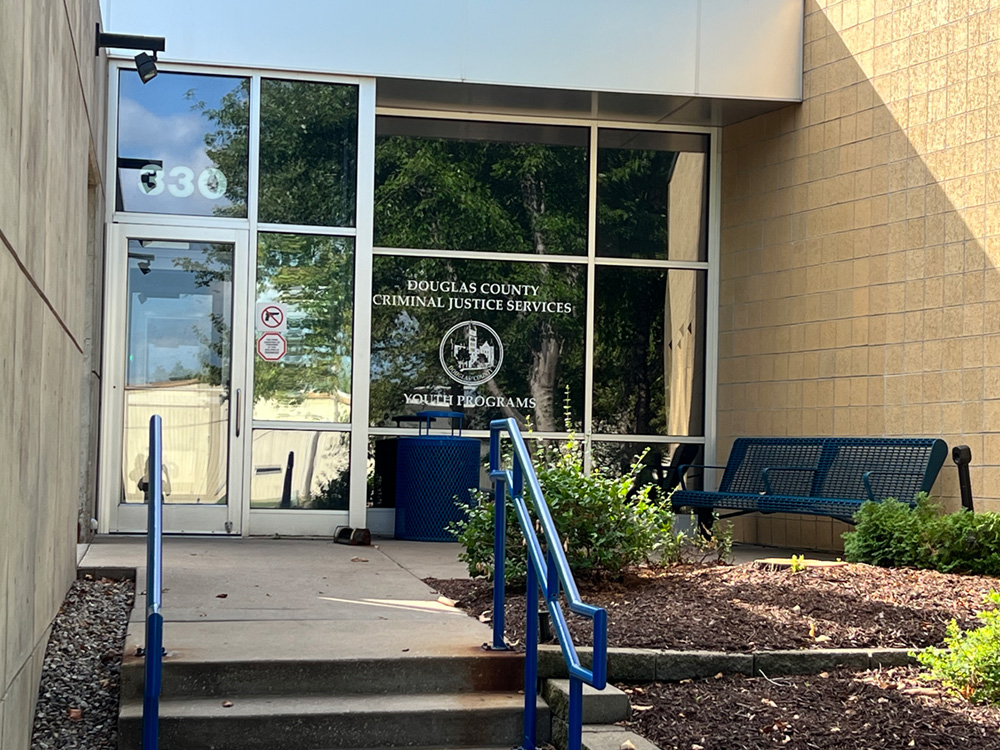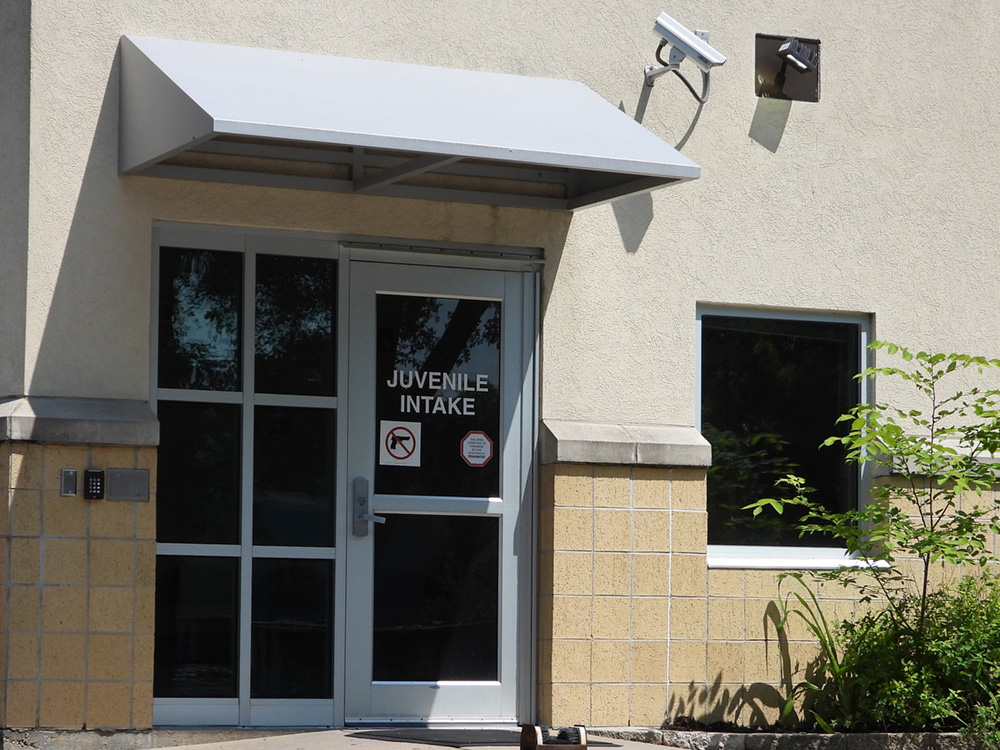Criminal Justice Services
Contact Us
Youth Services
Hours: Mon - Fri, 8 am - 5 pm
Email: Email Us
Phone: (785) 331-1300
Adult Services North
Hours: Mon - Fri, 8 am - 5 pm
Email: Email Us
Phone: (785) 331-1300
New Hampshire Office
Hours: Mon - Fri, 8 am - 5 pm
Email: Email Us
Phone: (785) 832-5220
Juvenile Community Corrections
Mission Statement
The Department of Corrections assists youth to become successful and productive citizens by providing leadership and support to:
- Prevent youth from becoming involved in the juvenile justice system
- Provide community supervision for youth who are involved in the juvenile justice system
- Provide safe, secure, humane and restorative confinement of youth to enhance public safety
- Promote public safety by holding youth accountable for their behavior
- Improve the ability of youth to live productively and responsibly in their communities
Douglas County Criminal Justice Services--Youth Services’ goals are:
- To keep our community safe
- To help you to take responsibility for your behavior
- To help you learn to make better choices in the future
Types of Supervision (Maintained by Juvenile Community Corrections)
Juvenile Community Corrections Services
Juvenile Community Corrections (Probation) services include:
- Forensic Evaluations
- Community Service Work Coordination
- Aggression Replacement Training
- House Arrest with and without Electronic Monitoring
- Job Placement/ Job Referral
- Drug Screens
- Needs Assessments
- Positive Behavior Supports
- Cognitive Behavior Programs
- Decision Points
- Parent Project
- Crossroads
- Restorative Justice Best Practice
- Building Peace
About Juvenile Intake
- Juvenile Intake is located at DCYS and is staffed by Douglas County employees.
- Juvenile Intake is on call 24 hours a day for law enforcement officers in juvenile cases. When there is no intake officer on call, one of the on duty Corrections Officers is able to complete the same process.
- Juvenile Intake also takes appointments between 8:00am and 5:00pm.
- The main contact person for Juvenile Intake is JSO Missy Vongphakdy.
What services are offered by Juvenile Intake?
- Crisis intervention for families
- Referral Services for additional help to families
- Emergency placement options for children at risk
- Pre-filing Diversion to avoid further court involvement
- Conditions of Release Supervision and monitoring
Contact Information
Office Location: Youth Services North
Address: 330 NE Industrial Ln, Lawrence, Kansas 66044
Phone: 785-331-1300
Two Entrance Locations

Main Office
For most visitors, please use our office entrance.
Hours: Mon - Fri, 8am - 5pm

Juvenile Intake Entrance
Hours: 24 hours a day, 7 days per week
Types of Supervision
Diversion - Immediate Intervention Program (IIP)
Allows youth to participate in a diversion so that they do not have an adjudication on their record. IIP's have 3 different levels and the level is based on if you have had an IIP previously and if the charge is a misdemeanor or a felony. The District Attorney's office decides who is granted an IIP. IIP's range from 4 months to up to a year in supervision. Depending on the level of IIP, you may not have to meet with a JSO, or you may have to meet with a JSO up to 2 times a month.
Probation - Intensive Supervised Probation (ISP) or Order of Assignment (OOA)
Order of Assignment means you are on probation with Douglas County Youth Services. At sentencing, the judge will tell you how long you are going to be on probation and any special rules you will need to follow. If you are not following the rules, the judge may extend your probation.
Pretrial - Conditions of Release (COR)
Conditions of Release allows a youth to be supervised in the community while waiting to appear in court. You could be assigned to CORs at two different points:
- Pre Adjudication – Adjudication is another word for being charged and convicted of a crime. If you are arrested and placed in detention, the district attorney may allow you to be released if you agree to follow certain rules. Your officer will meet with you and your guardian(s) to go over the rules with you and explain what you need to do. Your JSO will also talk to you and your guardians about how you’re doing in general. We will NOT ask you to explain what caused you to be arrested. This is because you have not been found guilty of any crime yet. It is your right to remain silent, or not share anything about your charges.
- Pre Sentence – If you are assigned to CORs before sentencing, you have already either pled to or were found guilty of an offense. The court has also probably ordered your JSO to do a report called a presentence investigation (PSI). Your JSO will gather as much information as possible about you and make a recommendation to the court about what your sentence should be. At this point, your JSO will ask you what happened that caused you to be charged with a crime.
Your JSO will tell the court how you did while on CORs; the things you did well and the things that you need to improve on. How you do while on CORs can affect what happens at sentencing.
Conditional Release from Kansas Juvenile Correctional Complex
Conditional Release applies to youth who have been released from a juvenile correctional facility (JCF). As part of your sentence, the court orders that you be supervised after your release. The length of conditional release can range from 3 months to 24 months. If you violate the rules on Conditional Release, you could be sent back to the JCF.
House Arrest
There are two types of House Arrest.
- House Arrest with Electronic Monitoring. This type of house arrest requires you to wear an electronic monitoring device around your ankle. You do not have permission to leave your home unless your JSO gives you permission. CJS-YS staff will be monitoring your location through Global Positioning System (GPS). The program is currently at no-cost to families.
- House Arrest without Electronic Monitoring. The only difference with this type of house arrest is that you do not have to wear an electronic monitoring unit around your ankle; however, you are still required to remain in your home at all times unless you have your JSO’s permission to leave.
Both types of House Arrest are like being in jail at home. You may not leave your house without your JSO’s permission. At home means you are inside the house, not in the yard, driveway, etc. Your JSO will allow you more time outside the house as you show that you are following the rules. While you are on House Arrest, it is important that your JSO know where you are at all times. This means that when you meet with your JSO you need to know what appointments and activities you want to do during the rest of the week so that you and your JSO can plan for this. You could be arrested and placed in detention if you violate your House Arrest Order.